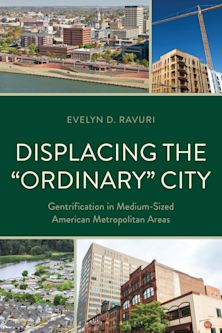- Home
- ACADEMIC
- Geography
- Human Geography
- The Legacy of Walter Rodney in Guyana and the Caribbean
The Legacy of Walter Rodney in Guyana and the Caribbean
This product is usually dispatched within 3 days
- Delivery and returns info
-
Free CA delivery on orders $40 or over
You must sign in to add this item to your wishlist. Please sign in or create an account
Description
Walter Rodney claimed developing countries were heirs to uneven development and ethnic disequilibrium, including continued forms of oppression from the capitalist countries and their own leaders. In Guyana, ethnic chauvinism persisted before and after independence from Britain. Rodney was disturbed by the inability of intellectuals to share common cause with the masses, thus ensuring that they would be unable to contribute to uplifting their talents or participate in the growth of the nation. Guyana and the Caribbean were subject to sugar and slave traffic that constituted cheap labor for the plantations and buttressed the capitalist-industrial system. A significant byproduct of that system was the master-slave relationship; a no-less iniquitous consequence was an active racism. Thus, social inequality became the heritage of Guyanese and Caribbean history. These social evils have influenced all of the social, economic, and political institutions in Guyana. Race, class, and color became the determinants of social value and how the various racial groups responded to them is both the triumph and the tragedy of Guyanese nationalism.
Rodney belongs in that pantheon of philosophers whose names adorn the history of the Caribbean and elsewhere. He has sought to lift the Caribbean people from the victimization of history and the poverty of material circumstance.
Table of Contents
Chapter 2 Introduction by Wazir Mohamed
Chapter 3 Chapter I: Identity and Ideology
Chapter 4 Chapter II: Education and Historical Consciousness
Chapter 5 Chapter III: Politics in the Diaspora Race in Post-slavery Societies
Chapter 6 Chapter IV: Slavery and Black Power
Chapter 7 Chapter V: Intellectualism and its Demands
Chapter 8 Chapter VI: The Approach to Armageddon
Chapter 9 Chapter VII: Assassination of Walter Rodney
Chapter 10 Chapter VIII: Garvey and Rodney
Chapter 11 Chapter IX: C. L. R. James, Rodney and the Taking of Power
Chapter 12 Bibliography
Chapter 13 Index
Product details
| Published | Dec 13 2010 |
|---|---|
| Format | Paperback |
| Edition | 1st |
| Extent | 236 |
| ISBN | 9780761854135 |
| Imprint | University Press of America |
| Dimensions | 231 x 156 mm |
| Publisher | Bloomsbury Publishing |
About the contributors
Reviews
-
With profound insight and elegance, Gibbons' main strength is anchoring Walter Rodney's exemplary political and intellectual career and legacy in its Guyanese and Caribbean origins and development.
Locksley Edmondson, professor, Africana studies, Cornell University
-
…Thoroughly researched and clearly written…A compelling and sympathetic analysis of Rodney's writing…Gibbons combines the journalist's instinct for the telling detail with the academic rigor of the professor of communications (emeritus) that he is…This book is required reading for any serious students of colonial history and the Black Diaspora.
Ewart Thomas, professor of psychology, Stanford University
-
…[Rodney] cultivated a style of scholarship which was made available through its lucidity to all layers of Caribbean societies…Gibbons…[takes] us stage by stage through [Rodney's] turbulent journeys …An impressive contribution to our understanding of the legacy of Walter Rodney.
Professor George Lamming, African studies, Brown University


































